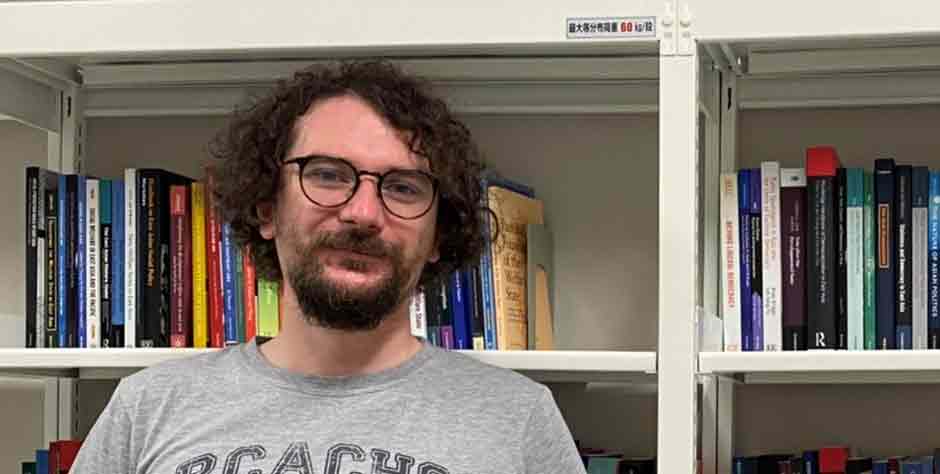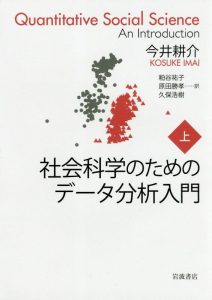教員紹介:ブラジル・マーク Marc Brazzill 助教
2021.6.15

教員紹介 ブラジル・マーク助教
OSIPPに4月1日付けで着任されたブラジル・マーク助教にインタビューを行いました。ブラジル先生は社会福祉政策を専門とされ、特に東アジアの社会福祉政策の研究を行っています。
(Followed by English translation)
現在取り組んでいる研究内容についてお聞かせください
東アジアの社会福祉政策について研究しています。その中でも特に、下記の三点について興味があります。
①社会保障政策と社会的投資政策のバランス
②政治体制や党派性が、導入される政策の選択にどのように影響するか
③異なる社会福祉政策に対する有権者の選好
社会福祉政策の研究はヨーロッパのものが多く、東アジアの情報が十分に出てきているとは言えません。それは、東アジア各国の国内では研究されてはいるのですが、その成果が英語で発信されていないからです。政策は各国で異なっていますが、なぜその政策が行われているのか、なにが政策の違いを生んでいるのか比較する必要があります。東アジアに関してはその地域に関する情報が少ない分、ひとまとまりで考えられていました。しかし、実際には東アジアの中でも各国間で違いがあるので、その情報を広めたいと思っています。
この研究に取り組むことになったきっかけを教えてください
博士課程で高等教育政策と社会福祉の関係を研究したことがきっかけです。具体的には、学費と奨学金制度について、各国の状況を比較しながら研究しました。学部生時代や修士課程の時には教育の面から社会福祉政策を研究しており、そこから徐々に社会福祉全体にテーマが広がっていきました。また、卒業後は、社会的投資政策に関連するプロジェクトにいくつか関わることがあり、自然な流れで社会福祉政策の研究に取り組むことになりました。
この研究の魅力や面白いところはどんなところですか。また、注目したい、面白い政策はありますか。
―魅力―
社会福祉政策とその形態は、特に社会の高齢化に伴い、ますます重要な政治的テーマとなっています。また、世界的な新型コロナウイルスの流行により、社会政策への関心が今までとは少し違った側面で高まっています。社会的投資政策に対する有権者の選好に関する研究は、比較的新しい分野であり、ヨーロッパでは優れた研究が行われていますが、東アジアではあまり行われていません。

オリジナル版ベイビーボックス (c) Finnish Baby Box
―政策―
フィンランドのベイビーボックスは面白い政策だと思います。子供が生まれると、病院で子育てに必要な食事や服、食料等が入った箱がもらえます。その箱自体を赤ちゃんのベッドとして使うことができます。
また、シンガポールにも興味深い政策があります。シンガポールでは子供が親をサポートしなければいけないという文化的義務があるのですが、それは法律で定められています。そのため、子供が親を支援しなければ、親が子供に対して訴訟を起こすこともあります。これは家族主義という考え方に基づいており、国家はみんなを支援することはできないので、足りない分は家族が支援しなければいけないと考えられています。

大学院で先生の専門とされている分野を研究するためには、学部生時代にどんな勉強をしておく必要がありますか
学部生の間に、統計とデータ分析を勉強しておくとよいと思います。特にR(定量研究の為の統計ソフト)は簡単に学ぶことができて無料なので、学生にはRの使用をお勧めしていますが、Pythonもよく使われています。
データ分析やRを勉強するには、今井耕介さんの『社会科学のためのデータ分析入門』やO’REILLYシリーズがおすすめです。統計を本格的に勉強したい方にはWooldridgeの『Introductory Econometrics: A Modern Approach』を勧めます。
もし社会福祉に興味がある方は、Gøsta Esping-Andersenの『The Three Worlds of Welfare Capitalism』を読むといいと思います。アジアの社会福祉に関しては増田・金の『アジアの社会保障』がおすすめです。
今回の取材をするまでは、社会福祉政策といえば北欧というイメージをもっていました。しかし、他の国の社会福祉政策に関するお話を聞く中で、各国が特色をもった政策を行っていることを知ることができました。また、東アジアにおける社会福祉政策に関する研究は比較的新しく、これからどのような研究が行われ、結果が出るのかとても興味があります。ブラジル先生にお勧めしていただいた本は、図書館にあるようなので、時間を作って読んでみたいと思います。
(OSIPP博士前期課程 千馬あさひ)
助教 ブラジル・マーク
学位:
修士・博士(政治学)(早稲田大学)
学士(優等学位)(日本学)(マンチェスター大学)
研究テーマ:東アジアの社会福祉政策
専門分野:社会福祉、高等教育、世論
**************英語訳**************
We had an interview with Assistant Professor Marc Brazzill, newly appointed to OSIPP. He specializes in social welfare policy, with a particular focus on social welfare policy in East Asia.
Please tell us about your current research projects.
My current research looks at social welfare policy in East Asia.
I am especially interested in:
① The balance between traditional social protection (insurance) policies and newer social investment policies
② How the political regime (democratic vs authoritarian) and political partisanship impact the choice of policies introduced
③ Voter preferences for different social welfare policies
Most of the research on social welfare policy has been done in the West, and it cannot be said that there is enough information on East Asia. This is because although research is being conducted within East Asian countries, the results are not being shared in English. There are different policies in each country, but it is necessary to compare why these policies are being implemented and what makes them different. East Asian countries were grouped together because of the lack of information. However, each country in East Asia has its own differences. Therefore, I would like to spread information on East Asia.
How did you come to be involved in this research?
For my graduate work I looked at higher education policy, focusing on its relationship with social welfare. Specifically, I researched tuition fees and scholarship systems, comparing different countries. At the time of my undergraduate and master’s degrees, I studied social welfare policy from the perspective of education, and my theme gradually expanded from there to include social welfare as a whole. After graduating I became involved in several projects looking at social investment policy, which felt like a natural evolution.
What are the attractive and interesting aspects of this research? Are there any interesting policies that you would like to focus on?
―Attraction―
Social welfare policy and the form it takes is increasingly an important political topic – especially as societies are ageing. The global COVID-19 pandemic has also drawn attention to social policy in a new way. Research into voter preferences for social investment policies is a relatively new field and there is excellent research being done on this in Europe, but less so in East Asia.
―Policy―

original Baby Box(c) Finnish Baby Box
I think the Finnish baby box is an interesting policy. When you have a baby, you get a box at the hospital with necessities ranging from clothes to toys. The box itself can be used as a bed for the baby.
There is a particularly interesting policy in Singapore. In Singapore, there is a cultural obligation for children to support their parents, which is established by law. Therefore, if the child does not support the parent, the parent may file a lawsuit against the child. This is based on the concept of familism, which states that the state cannot support everyone, so the family must support the shortage. Many countries with the idea of familism are in East Asia.

What do you think is necessary to study in order to conduct research in your field of specialization in graduate school (e.g., what students should do in an undergraduate course)?
Statistics and data analysis. I recommend students learn to use R as it is easy to learn and free, but Python is also commonly used.
To study data analysis and R, “Quantitative Social Science: An Introduction” written by Kosuke Imai and O’REILLY series are recommended. In addition, Wooldridge’s “Introductory Econometrics: A Modern Approach” is recommended for those who want to study statistics in earnest.
If you want to study social welfare, “The Three Worlds of Welfare Capitalism” written by Gøsta Esping-Andersen is recommended. For more information on social welfare in Asia, “Social Security of Asia” by Masuda and Kim is suggested.
(OSIPP master’s student, Asahi Senma)
Academic degree:
M.A./Ph.D. in Political Science, Waseda University
B.A. (Hons.) in Japanese Studies, University of Manchester
Research topic:East Asian social welfare policy
Field of expertise:social welfare, higher education, public opinion
